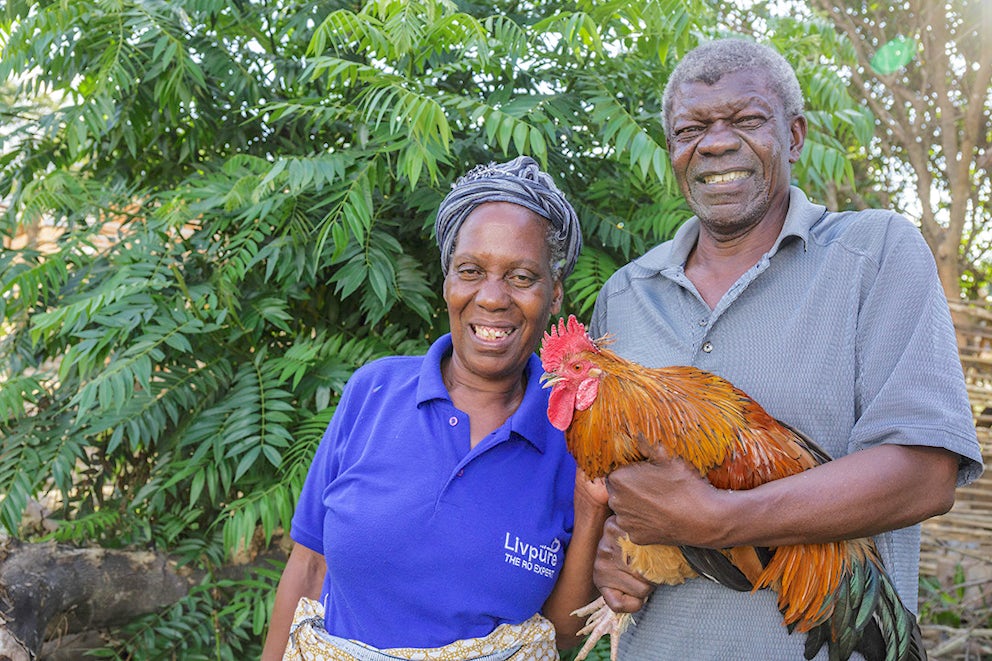
Ending Poverty Begins With Agriculture
Building a Business
At Heifer International, we’re on a mission to end hunger and poverty in a sustainable way.
We know that a secure source of income can be truly transformative for families and their communities. That’s why we provide livestock and expertise to farmers in the United States and around the world so they can feed their families and end poverty in their communities.
Our Work in Zambia
Farmers in Zambia's Copperbelt region have built successful dairy businesses with cows and training we’ve provided together with the University of Illinois and Elanco Animal Health.
Research has shown how daily deliveries of fresh milk are making nutritious food available to families and putting more money in farmers’ pockets.



Help Us Impact More Families
Your gift today can impact the lives of more farmers like these. Please consider making a donation to support Heifer's work in helping farmers build successful businesses all over the world.
This site is protected by reCAPTCHA and the Google Privacy Policy and Terms of Service apply.
Research by the University of Illinois on Our Work in Zambia
Study 1
This paper explores the staggered rollout of livestock distribution by Heifer International in Zambia to identify the effects of livestock using statistically similar treatment and control groups in a balanced panel of households.
Milk in the Data: Food Security Impacts from a Livestock
Study 2
In this research, we explore another policy strategy that involves animal source foods as a mechanism to help remedy micronutrient inadequacies in a population.
Study 3
Analyses of the impacts of asset transfer programs often find statistically significant effects on consumption expenditures that are large in percentage terms but small in absolute value. This study explores the practical significance of such impacts using the case of a livestock transfer program among impoverished households in Zambia.
Study 4
This paper studies the effects of Heifer International’s multifaceted asset transfer program on women’s roles in decision making in small-farmer households in Zambia.
Study 5
We estimate the impact of an asset transfer program on household resilience. We measure resilience as the probability that a household will keep enough assets to support consumption above the poverty line in the face of future shocks and stresses.
Do Asset Transfers Build Household Resilience?
Study 6
This analysis is motivated by recognition that anti-poverty interventions often affect both the level and composition of assets held by beneficiaries.
Do different types of assets have differential effects on child education? Evidence from Tanzania
